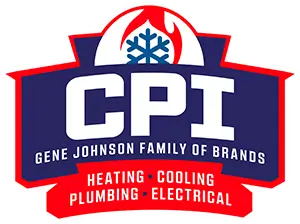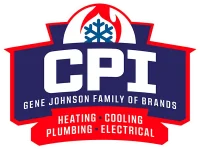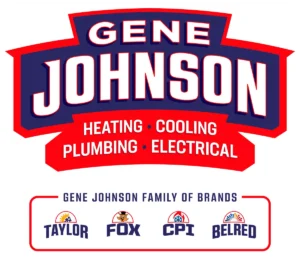Air to Air vs Air to Water Heat Pumps
Air-to-Air vs Air-to-Water Heat Pumps: Which Should You Choose?
Let’s talk heat pumps.
These marvelous inventions have a pivotal role in keeping our homes comfortable all year round. However, choosing one that meets the specific needs of each home can be tricky.
In this article, we’re focusing on two particular types: the air-to-air heat pump and the air-to-water heat pump.
Hopefully, this gives you the insights you need to make the best choice for your home.
Understanding Heat Pumps
Before diving into the specifics, it’s essential to understand what heat pumps are and how they work.
Simply put, heat pumps move heat from one place to another. During winter, they extract heat from the outside (even when it’s cold) and bring it indoors.
Come summer, they do the opposite, removing heat from inside your home to keep it cool.
There are different types of heat pumps, but for today, we’re zeroing in on air-to-air and air-to-water heat pumps.
Air-to-Air Heat Pumps: What Are They?
The air-to-air heat pump, as the name suggests, is a device that extracts heat from the outdoor air and transfers it inside to warm your home.
But it’s not a one-trick pony – when the seasons change and the temperature rises, it reverses the process, removing heat from your home to keep it cool.
Benefits of an Air-to-Air Heat Pump
There are plenty of reasons why an air-to-air heat pump might be the right choice for your home.
- Efficiency: One of the biggest advantages of an air-to-air heat pump is its efficiency. It uses significantly less electricity compared to traditional heating systems, which can translate into substantial energy savings.
- Installation Costs: Installation costs for air-to-air heat pumps are typically lower than other systems, especially those requiring extensive ductwork. This makes them a cost-effective choice for many homeowners.
- Maintenance: Maintenance for air-to-air heat pumps is usually straightforward and relatively inexpensive. Regular servicing will ensure your heat pump operates at peak performance.
Limitations of Air-to-Air Heat Pumps
Like any heating and cooling solution, air-to-air heat pumps do have their limitations.
- Efficiency in Extreme Climates: While air-to-air heat pumps are known for their efficiency, this can be affected by the outdoor temperature. In extremely cold climates, these heat pumps may struggle to extract sufficient heat from the air.
- Building Suitability: While air-to-air heat pumps can be used in many types of buildings, they perform best in well-insulated homes. This is due to their operation principle – the better insulated your home, the less heat loss you’ll experience, allowing the heat pump to work at its most efficient.
Air-to-Water Heat Pump
Taking center stage now is the air-to-water heat pump.
This sophisticated system transfers heat from the outside air to water, and this warmed water is then used for various heating applications.
Whether it’s underfloor heating, radiators, or providing hot water for your home, the air-to-water heat pump has got you covered.
Benefits of an Air-to-Water Heat Pump
The air-to-water heat pump brings with it several notable benefits, including:
- Efficiency: Air-to-water heat pumps are renowned for their efficiency. What makes them particularly special is their ability to provide both heating and hot water simultaneously, which can lead to significant energy savings over time.
- Installation Costs: While it’s true that the installation costs for an air-to-water heat pump are generally higher than those for an air-to-air system, primarily due to the need for a water distribution system, it’s essential to consider the bigger picture. These initial costs can often be offset by lower running costs in the long run.
- Maintenance: As with the air-to-air option, regular check-ups are crucial for keeping your air-to-water heat pump in optimal condition.
Limitations of Air-to-Water Heat Pumps
As impressive as they are, air-to-water heat pumps aren’t without their own set of limitations.
- Building Design and Insulation: Unlike air-to-air systems, air-to-water heat pumps are more dependent on the quality of insulation and the building’s design. This is because the efficiency of the system can be influenced by how well the building retains heat.
- Climate Suitability: Another point to bear in mind is that air-to-water heat pumps might not be suitable for all climates. In regions where temperatures frequently plummet below freezing, these systems may struggle to perform at their best.
Comparative Analysis: Air-to-Air vs Air-to-Water Heat Pumps
When choosing between air-to-air and air-to-water heat pumps, understanding their comparative strengths and weaknesses can be a game-changer. Let’s take a look at each product’s performance side-by-side:
Efficiency: Comparing the Two
When it comes to energy efficiency, both systems come up strong.
However, if you’re looking at the best overall energy savings, the air-to-water system might edge ahead, particularly if you require both heating and hot water.
It’s essential to weigh these potential energy savings against the initial costs and ongoing expenses.
Installation Costs and Potential Savings
In terms of installation costs, air-to-air systems generally come out on top. They are typically cheaper to install due to their simpler setup.
However, keep in mind that while air-to-water systems may have higher initial costs, their potential energy savings over time can often offset this.
Maintenance Considerations
Regardless of the type of heat pump, regular maintenance is non-negotiable.
Both air-to-air and air-to-water heat pumps need regular check-ups to ensure optimal performance, although the specifics of the maintenance tasks may vary between the two.
Climate Suitability
Both air-to-air and air-to-water heat pumps work well in moderate climates, but they can run into efficiency issues in more extreme temperatures. In regions where it gets incredibly cold, both systems may struggle, although air-to-water systems can be particularly affected due to the freezing risk of the water element.
Building Suitability
Both systems work best in well-insulated buildings, but the air-to-water system is more sensitive to building design, requiring a compatible water distribution system.
Always consider the design and insulation of your building when choosing between these two systems.
So, Which Heat Pump Should You Choose?
Well, there’s no universal answer.
Your decision should depend on your specific circumstances, including your home’s characteristics, your local climate, and your heating needs.
Here are some tips that may be helpful:
Consider Your Home’s Characteristics
The size, layout, and insulation of your home are crucial factors to consider.
As we’ve mentioned, air-to-air heat pumps are an excellent fit for well-insulated homes.
Meanwhile, air-to-water heat pumps are more dependent on the building’s design due to their requirement for a compatible water distribution system.
If your home has an existing duct system in place, an air-to-air heat pump might be an easier fit.
However, if you’re planning a new build or a significant renovation, you might have the flexibility to consider either option.
Assess Your Local Climate
Climate plays a significant role in the efficiency of a heat pump. If you live in a region with mild winters, an air-to-air heat pump can serve you well.
However, in extremely cold climates, these systems might struggle to extract sufficient heat.
Air-to-water systems can also struggle in freezing temperatures, so it’s essential to consider the typical weather patterns in your area.
Understand Your Heating Needs
Are you looking for a solution primarily for heating, or do you need cooling and hot water supply as well?
If you need a system that can provide both heating and cooling, an air-to-air heat pump would be a good fit.
However, if you need a comprehensive solution that can cover heating, cooling, and hot water supply, an air-to-water system could be more suitable.
Think About Long-term Costs
While initial costs are certainly important, don’t forget to think about the long term.
An air-to-water heat pump may have higher installation costs.
However, the potential for energy savings, in the long run, could make it a more economical choice.
Before settling for a specific heat pump, consider consulting with a professional, such as CPI Plumbing, Heating & Cooling.
Our experts can guide you toward the best decision for your specific needs. Contact us today for more details!
Why Choose CPI?
When it comes to the installation and maintenance of your heat pump, you want a service you can trust. That’s where CPI Plumbing & Heating comes in. We’re experts in the field with years of experience and knowledge at our disposal.
Expertise and Experience
We’ve been in the business long enough to understand the intricacies of heat pump systems, be it air-to-air or air-to-water.
Our team of professionals is highly trained and experienced, ensuring top-tier service and reliable advice.
Customer Satisfaction
We understand the importance of your home’s heating and cooling systems and treat every job with the attention it deserves.
From initial consultation to installation and maintenance, we ensure our customers are happy and comfortable with their systems.
Comprehensive Services
We offer a wide range of services covering all your heating and plumbing needs. From heat pump installation and repair to routine maintenance, we’ve got you covered.
Quality and Value
At CPI, we believe in providing quality service at a fair price. We’re committed to helping you find the most cost-effective and energy-efficient solution for your home.
Ready to Experience the Heat Pump Difference with CPI?
If you’re ready to explore the benefits of a heat pump, don’t hesitate to reach out to CPI Plumbing, Heating & Cooling. Let our team of experts guide you in choosing the most suitable heat pump for your needs.
From installation to maintenance, we’re dedicated to ensuring your home’s heating and cooling systems are top-notch.
Give us a call today, and let’s start your journey toward a more energy-efficient home.


